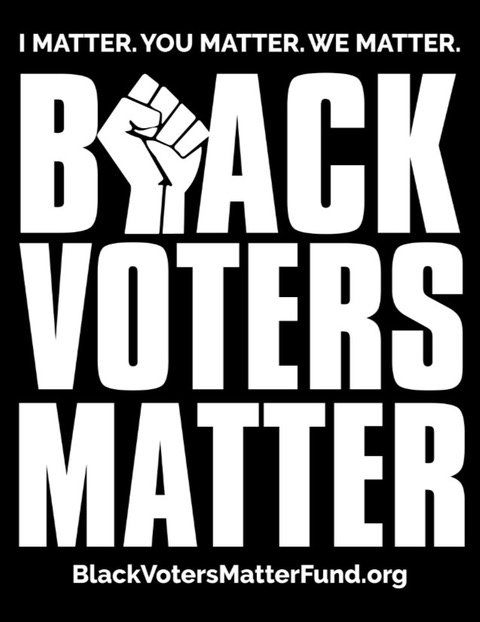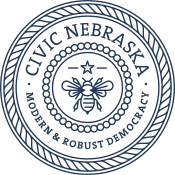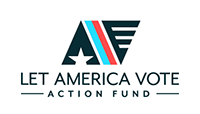No matter our race, background, or zip code, most of us believe that for democracy to work for all of us, it must include us all.
To move forward as a nation, we must ensure that every eligible American has the Freedom to Vote and that the results of our elections reflect the will of the people.
But today, states across the country are putting up new barriers to vote. In the past few years alone, hundreds of bills in nearly every state have been introduced to restrict Americans’ freedom to vote.
The Freedom to Vote Act and the John Lewis Voting Rights Advancement Act are two of the most prominent pieces of legislation introduced by Congress to promote the Freedom to Vote and help enact national standards for voting. Below is detailed information on each bill — and the impact they would have on our nation’s voting laws.
THE FREEDOM TO VOTE ACT
The Freedom to Vote Act is proposed federal legislation that includes a comprehensive set of reforms that will:
- Create national standards that ensure voting options are equally accessible across all 50 states and DC
- Prevent attempts to implement deliberate barriers to voting for Black and Brown communities, young people, new Americans, and Americans with disabilities
- Restrict lobbying and dark money in politics to help prevent billionaires from buying our elections
- Ensure that Congressional districts are drawn to promote fair representation for all through community districting
We broke the bill down into five categories below.
The Freedom to Vote
The Freedom to Vote Act seeks to prevent deliberate barriers to voting for young people, indigenous communities, people of color, new Americans, and Americans with disabilities and to guarantee that Congressional districts are drawn to ensure fair representation. Specifically, the Freedom to Vote Act:
- Provides new protections for voters with disabilities, Military and overseas voters, and Native Americans’ voters freedom to vote
- Guarantees the freedom to vote to returning citizens with past convictions
- Seeks to end partisan and racially biased gerrymandering by establishing specific standards for redistricting and makes judicial remedies available for states’ failure to comply. States have the option to implement independent redistricting commissions.
Standardized Voting Policies
The Freedom to Vote Act sets out to create national standards that ensure voting options are equally accessible across all 50 states and DC to guarantee that Americans have a say in key decisions that impact our lives. Specifically, this legislation:
- Ensures that early voting and mail voting are equally available in every state
- Offers same-day voter registration on Election Day
- Makes online voter registration available in every state
- Sets a uniform standard for voter identification cards and documents needed to vote in person, which includes both digital or hard copies of student IDs, tribal IDs, government provided assistance cards (TANF and SNAP), and more.
- Enacts an automatic voter registration system through the Department of Motor Vehicles in every state
- Offers protection against voter roll purges that disenfranchise registered voters
Campaign Finance Reform
The Freedom to Vote Act seeks to ensure power is with the people by taking aim at the influence of money in our politics, making campaigns more transparent. Specifically, this legislation:
- Creates an “Honest Ad” policy requiring online political ads to have clear disclosures
- Closes loopholes used to donate anonymously
Election Administration
The Freedom to Vote Act introduces new election administration standards to ensure voters’ voices are heard and election officials are supported.. Specifically, this legislation:
- Offers protection against voter roll purges that disenfranchise registered voters
- Ensures provisional ballots are counted for all eligible races within a county, regardless of the precinct they were cast in
- Provides funding for state-led innovation in election infrastructure
- Creates a nonpartisan election official recruitment and training program
- Establishes federal protections for nonpartisan election officials to prevent undue partisan interference or control
Safe, Accessible, and Transparent Elections
The Freedom to Vote Act aims to create a transparent election process while ensuring safe and accessible elections for all. Specifically, this legislation:
- Ensures votes are recorded on paper ballots that can be accurately recounted
- Requires election technology vendor oversight
- Strengthens cybersecurity measures to protect voting information
- Provides grants for states to purchase secure voting machines and invest in cybersecurity
- Improves the ability of the Federal Election Commission to enforce election regulations
The John Lewis Voting Rights Advancement Act
The John Lewis Voting Rights Advancement Act is proposed federal legislation that ensures any changes to local or state elections are federally reviewed — a process known as preclearance, which was part of the original Voting Rights Act of 1965. The bill would restore the full protections of the original, bipartisan VRA, including:
- Creating a new coverage formula that hinges on a finding of repeated voting rights violations in the preceding 25 years, measured on a rolling basis.
- Establishing “practice-based preclearance” for reviewing voting changes focused on measures that have historically been used to discriminate against voters of color.
- Electoral districts that qualify for preclearance will be covered for 10 years, but they can be extracted from federal review if they establish a clean record during that period.
The Voting Rights Act of 1965
Passed in 1965 following Bloody Sunday, the Voting Rights Act (VRA) transformed electoral participation in our country. While the VRA included several provisions, there were three critical components:
- It prohibited discrimination based on race or ethnicity empowering people to challenge discriminatory voting practices in court.
- It established a formula to identify specific areas that had a history of discriminatory voting practices. These areas included states, counties, cities and townships across the country.
- It required these specific areas to get approval from the U.S. Department of Justice before they could make changes to their elections. This process is known as preclearance. Given their histories, these areas could not be trusted to establish non-discriminatory election-related policies on their own. Preclearance provided a process in which these areas could make changes to their elections and voting-related policies so long as the proposed policies did not discriminate.
The VRA was reauthorized with overwhelmingly bipartisan support five times, including as recently as 2006. Those renewals included several additions and expansions to the policy. The VRA is widely considered one of the most important pieces of legislation in our country’s history.
Shelby County v. Holder (2013)
In 2013, the U.S. Supreme Court ruling in Shelby County v. Holder gutted The Voting Rights Act of 1965. The Court recognized that discrimination still existed and preclearance was still needed, but it ruled the formula used to determine which areas were required to seek preclearance was outdated. It called on Congress to update the formula.
In the eight years since the Shelby decision, Congress has failed to pass a new formula resulting in a significantly weakened VRA. Without a formula, areas with a long history of discrimination do not have to get permission from the federal government to change their election-related policies. That means, it is open season for voter suppression.
You can read more about preclearance and the Shelby decision in Rock the Vote’s explainer.)
Voting Rights at the State Level
Following the Shelby County ruling, several states passed sweeping voter suppression laws that disproportionately prevent young people, minorities, people with no and low income, people with disabilities, and people who are not fluent in English from voting.
Today, there is a full assault on the Freedom to Vote. In 2021 alone, more than 389 bills in 48 states have been introduced to restrict Americans’ freedom to vote, such as high profile bills in Arizona and Texas. Newly enacted legislation in places like Florida, Georgia and Iowa include wide sweeping restrictions that attack not only the freedom to vote, but also the courts where discriminatory policies are challenged.
Public Opinion
%
believe the Voting Rights Act is still needed
%
support the Freedom to Vote Act
%
support the John Lewis Voting Rights Advancement Act
Research by Lake Research Partners & Data for Progress
Our Partners






















